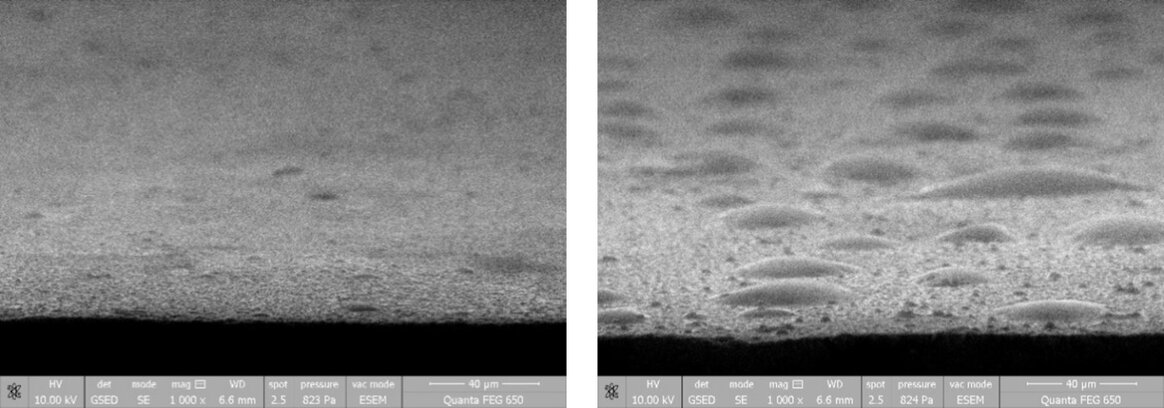
With the exit from fossil fuels and the achievement of climate targets, alternative technologies are needed for heating and cooling. However, conventional heat pumps and air conditioning systems are noisy, consume a lot of electricity and use refrigerants that are harmful to the climate. This is why scientists around the world are working on electrocaloric heat pumps – they use materials that can change their temperature when an electric field is applied, thereby generating heat or cold.
As part of the Fraunhofer ElKaWe project, the Fraunhofer Institute for Electron Beam and Plasma Technology FEP has made significant progress in developing electrocaloric heat pumps, which are considered a promising alternative to conventional heat pumps and air conditioning systems. These new heat pumps utilize materials that change temperature when an electric field is applied, eliminating the need for environmentally harmful refrigerants. The technology is characterized by higher energy efficiency and lower noise levels, making it particularly suitable for use in urban and sensitive environments.
A key factor in the efficiency of these heat pumps is optimal heat transfer, which is achieved through complete wetting of the surfaces of the electrocaloric components. To meet this requirement, Fraunhofer FEP has developed superhydrophilic metal oxide thin films, which are applied to the electrocaloric materials using magnetron sputtering. These coatings feature a mesoporous microstructure with pore diameters ranging from 2 to 50 nanometers. This structure promotes capillary effects, enabling rapid liquid spreading on the surface and accelerating the condensation and evaporation processes.
These coatings have led to a significant improvement in heat transfer rates. In particular, the droplet dynamics are enhanced: the coated components exhibit higher droplet nucleation and growth rates, allowing condensation and evaporation to occur more rapidly. This results in a substantial increase in heat transfer performance, making the technology highly efficient.

The achieved permanent superhydrophilicity of these thin films makes this technology especially suitable for use in solid-state cooling devices like electrocaloric heat pumps. Currently, Fraunhofer FEP scientists are working on scaling this technology from laboratory scale to industrial production, with the aim of achieving market readiness within the next 5-7 years. A particular focus is on the further development of polymer-based electrocaloric heat pumps, which could offer additional advantages in terms of flexibility and cost reduction.
These promising research results will be presented at the PSE 2024 conference in Erfurt. The scientists are open to follow-up projects to further advance the development of this groundbreaking technology and contribute significantly to sustainable heating and cooling solutions.
For more than ten years, Fraunhofer FEP has been involved in the processing of ultra-thin glass, especially in the handling …
The technical program for the IVAM Hightech Summit 2025, taking place on May 21–22 at Signal Iduna Park in …
When the current stage of the AI Act comes into force, all companies that use artificial intelligence must ensure that …